Why I packed 8 COVID-19 tests to fly to Portugal — and what it’s like to enter now
Travel is back -- but it's largely been driven by trips within the U.S.
International travel has been slower to return, partly due to ever-changing restrictions, lower vaccination rates abroad and the omnipresent threat of new COVID-19 variants.
However, since June 15, Portugal has allowed nonessential travel — including tourism — from the U.S. with proof of a negative COVID-19 test.
I just landed at Lisbon Humberto Delgado Airport (LIS) and, if all goes to plan, will spend the next nine days in the land known for pastel de nata, Piri Piri chicken and port wine (among many other non-food attractions).
But because of the latest travel criteria issued last week, I also packed eight at-home COVID-19 tests to bring along with me.
Let me break down why, including all the COVID-19 measures in Portugal and what you should know about entering the country now.
[table-of-contents /]
Overview of Portugal's entry requirements
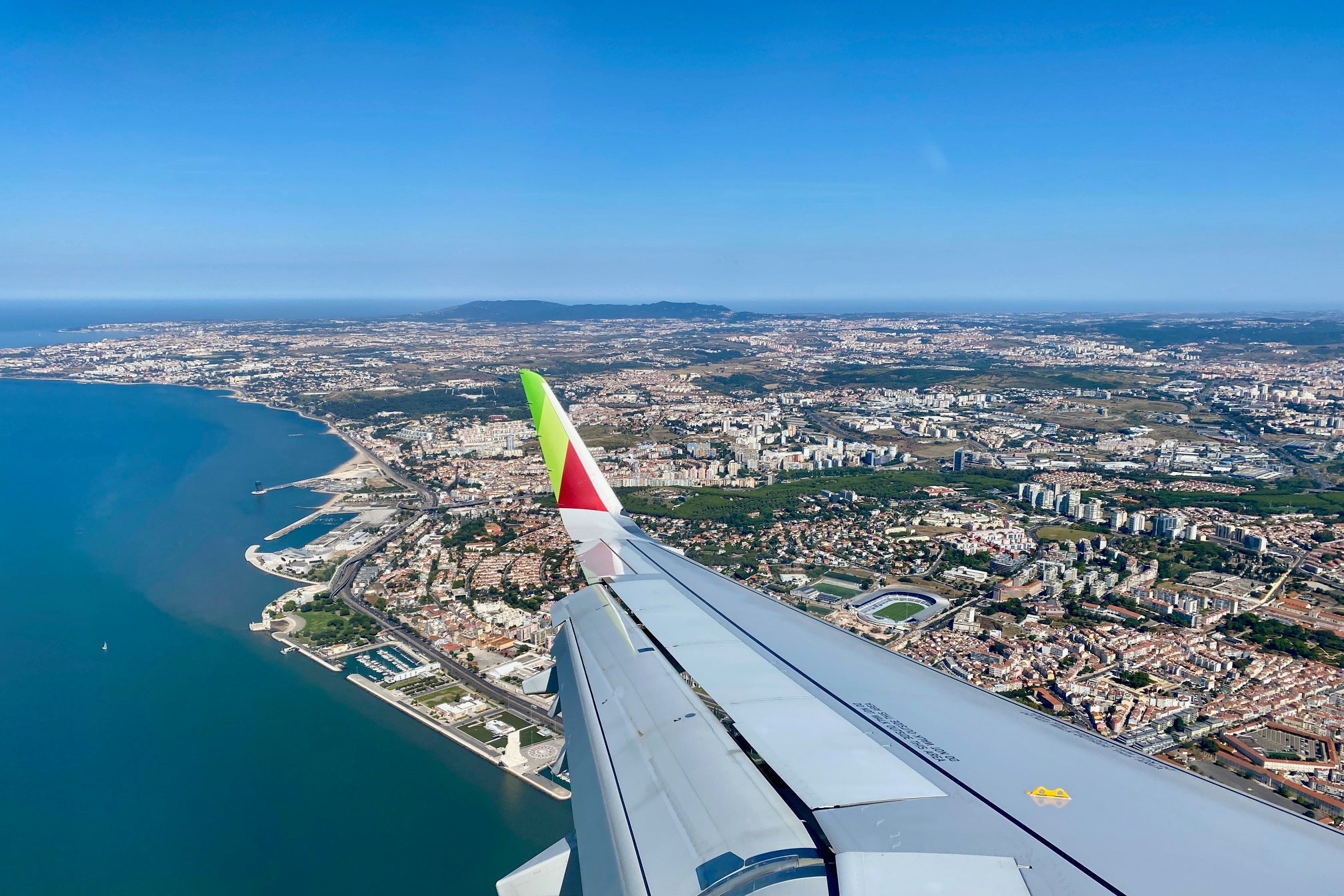
Related: Reopening Europe: When can you visit again? A country-by-country guide.
Unlike other nations requiring proof of vaccination, Portugal is taking a somewhat different approach.

All travelers headed to Portugal must provide proof of a negative nucleic acid amplification test (NAAT), such as a PCR test, taken within 72 hours before boarding. Rapid tests are also accepted but must be performed within 48 hours of boarding.
As of July 12, Portuguese authorities will now also accept the EU Digital COVID Certificate, giving Europeans a uniform way to provide proof of full vaccination against COVID-19, negative PCR or antigen tests or recovery from COVID-19.
However, it's not currently accessible to Americans traveling in Europe, nor has a digital equivalent has been introduced yet in the U.S. That means, even if you're fully vaccinated, you must still show a negative COVID-19 test to enter Portugal.
Ongoing COVID-19 measures to be aware of
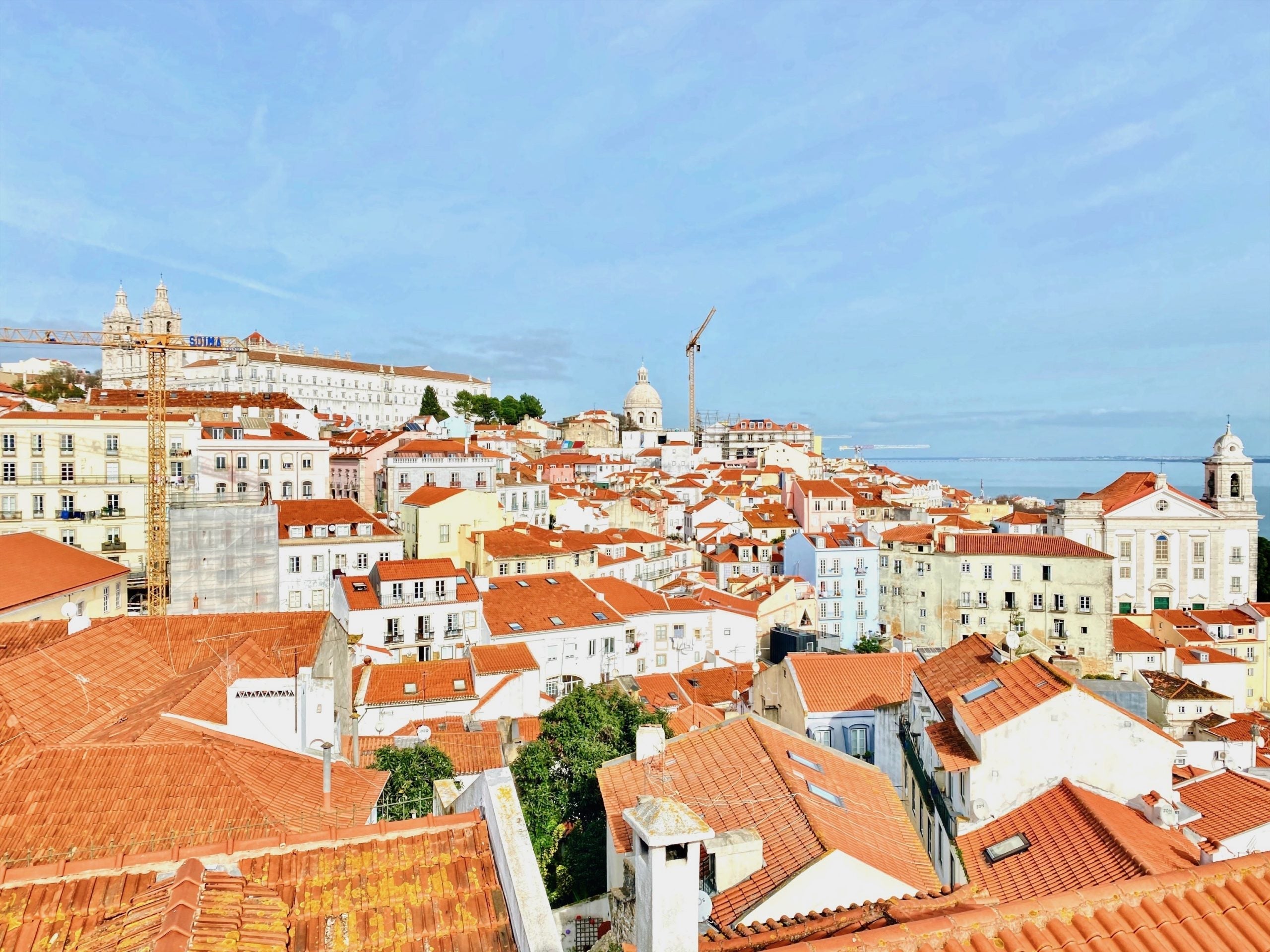
A resurgence of COVID-19 due to the Delta variant has put a damper on a complete reopening. That's not only the case in Portugal but also across all of Europe.
As of July 15, Portugal has recorded over 916,000 positive cases of the coronavirus and more than 17,000 deaths, according to the Johns Hopkins University tracker. And just over 43% of the population has been fully vaccinated against COVID-19.
Curfew
With the latest information as of July 12, Portugal will continue a nightly curfew, including restrictions on restaurants, cafes and nightlife. For over 40 municipalities, including popular tourist locales such as Lisbon, Porto and the Algarve, that means establishments must close by 10:30 pm each day.
Related: Portugal reintroduces nightly curfew amid rising COVID-19 cases
Requirements at accommodations

The latest requirement as of last week is the primary reason why I packed eight COVID-19 tests to bring with me.
Across all of Portugal, accommodations -- including hotels and Airbnbs -- must check for valid COVID-19 criteria before you can check-in. Here's what that looks like:
- Within 72 hours of check-in time: Negative PCR test
- Within 48 hours of check-in time: Rapid antigen test with lab report
- Within 24 hours of check-in time: Rapid antigen test (must be in the presence of a health or pharmaceutical professional who certifies result)
- No time requirement:
- Rapid antigen self-test carried out at the door of the establishment (must be under the supervision of a person in charge of premises)
- EU Digital COVID Certificate
Children under 12 years old, when accompanied by an adult, are exempt from testing and travel requirements. With all that said, this new ordinance makes things somewhat difficult to change accommodations during a stay in Portugal.
Related: 13 of the most beautiful villages in Portugal
Dining indoors
In addition, these protocols above are also in place for access to meals inside restaurants on certain days and times. For 45 municipalities deemed "high-risk" or "very high-risk," including the tourist zones of Lisbon, Porto and the Algarve, indoor dining is restricted during the following:
- Fridays after 7 pm
- Saturdays and Sundays all-day
- Public holidays
There are several other restrictions, including bans on large group gatherings and access to public roads between 11 pm and 6 am the following day.
Of course, as with anything pandemic-related, note that requirements are subject to change at any time.
My preparations before arriving
Rapid test prior to boarding
As with most of my travel these days, my trip to Portugal began with a COVID-19 test. This time, I went to CityMD, a popular urgent care clinic in New York.
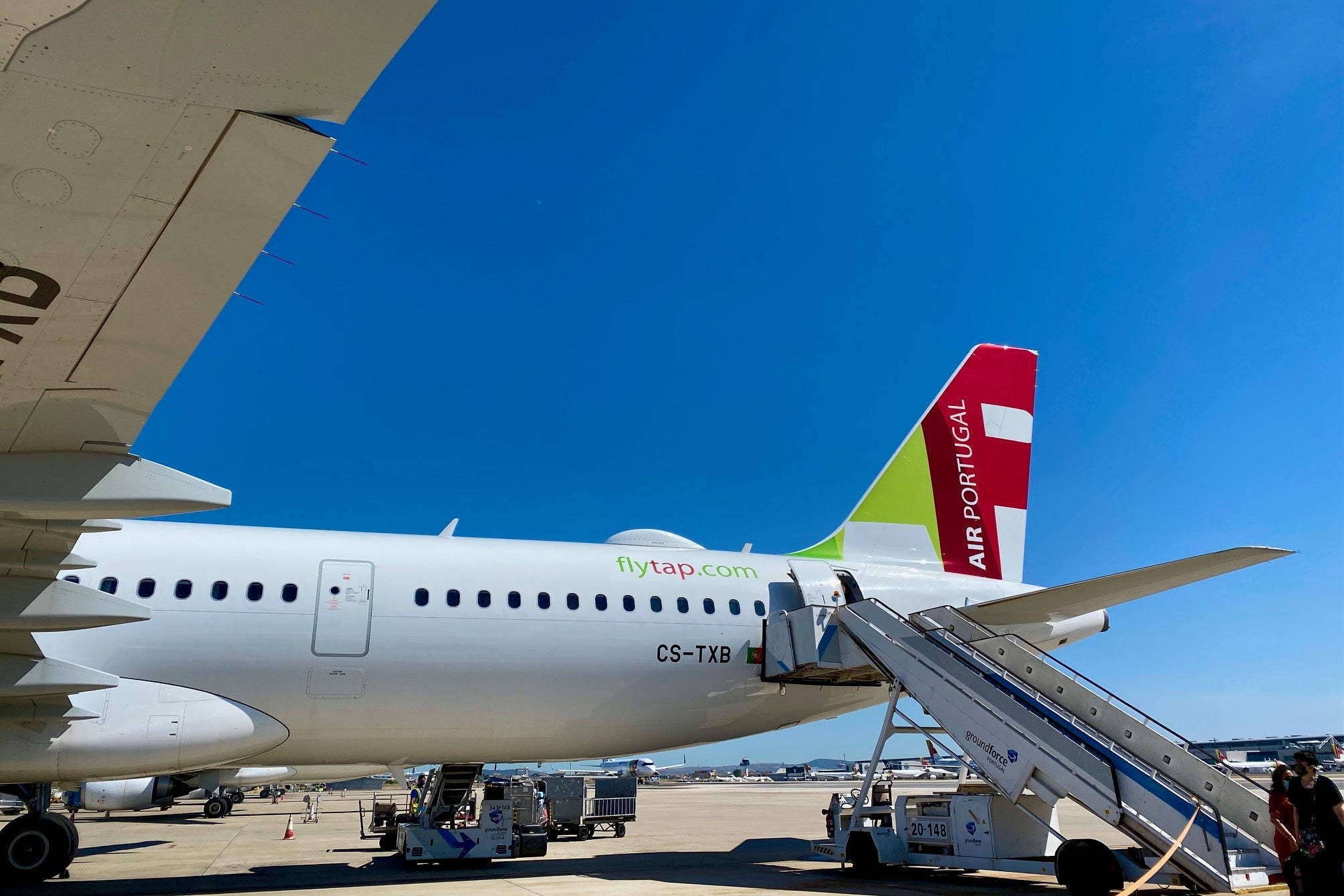
My TAP Air Portugal flight bound for Lisbon departed at 11 pm. I stopped in for a rapid antigen test in the early afternoon of my day of departure. Results were quick and emailed within 20 minutes.
For an added sense of comfort, I also had the clinic print out a paper copy of my negative test results.
Bringing rapid tests to Portugal
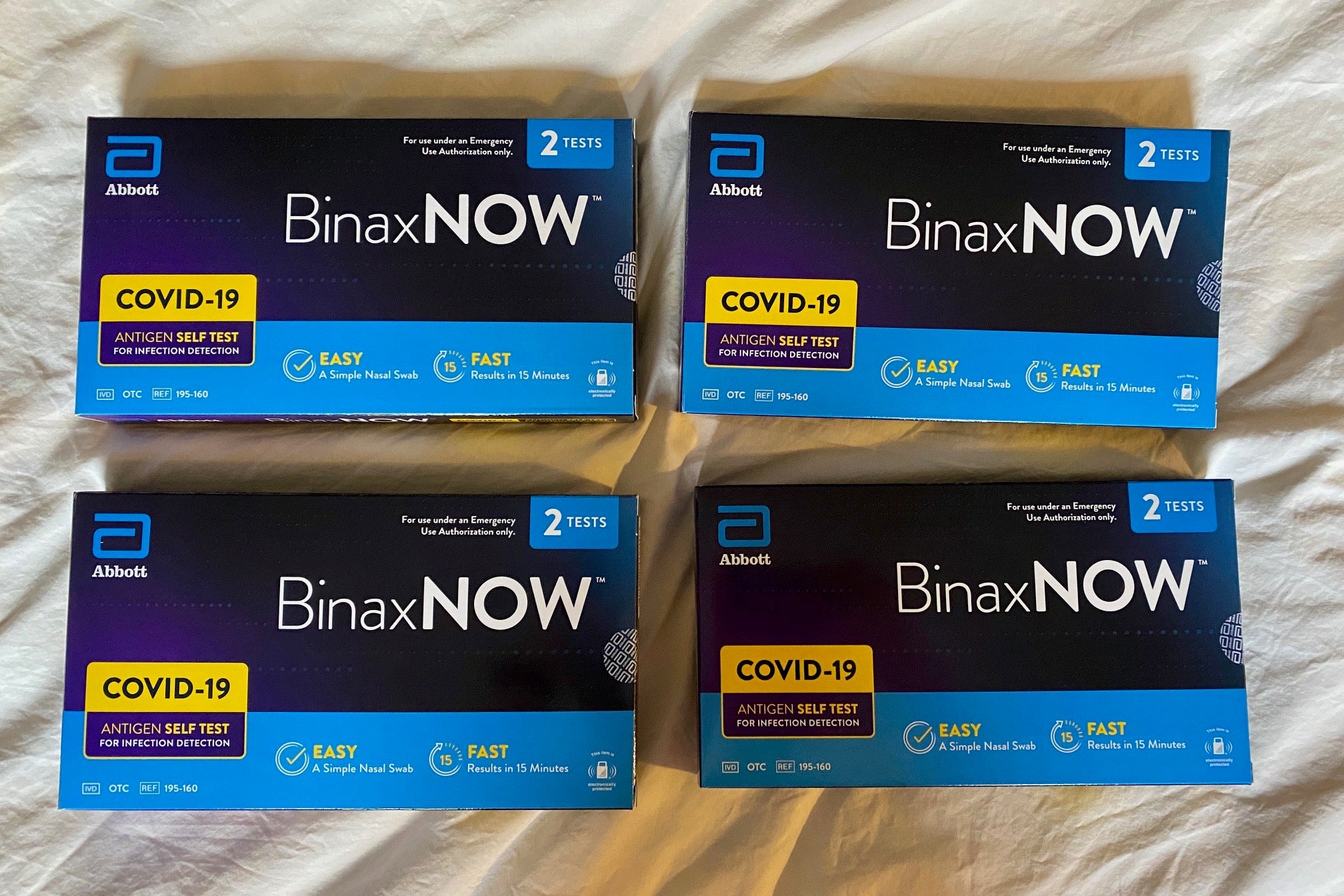
Next, I headed to CVS to obtain a healthy supply of rapid antigen self-test kits. The reason? In light of the latest rules for accommodations and indoor dining (see above), I wanted to avoid having to look for COVID-19 testing locations while I was abroad, if at all possible.
Keep in mind that any at-home test kits found at your local drug store are not valid for re-entering the U.S. The only at-home test kits that can be purchased for use to enter the U.S. are not only pricier (about $50 per test vs. $13 per test) but only currently available for purchase online.
Since I am staying at five different hotels across nine days -- in addition to likely dining indoors -- it is likely that I'd require several negative test results throughout my time in Portugal.
I purchased four home test kits, with two nasal swabs per package, and secured them in my suitcase.
Related: What happens if you test positive for COVID-19 and can't fly back to the US?
At the airport in the U.S.
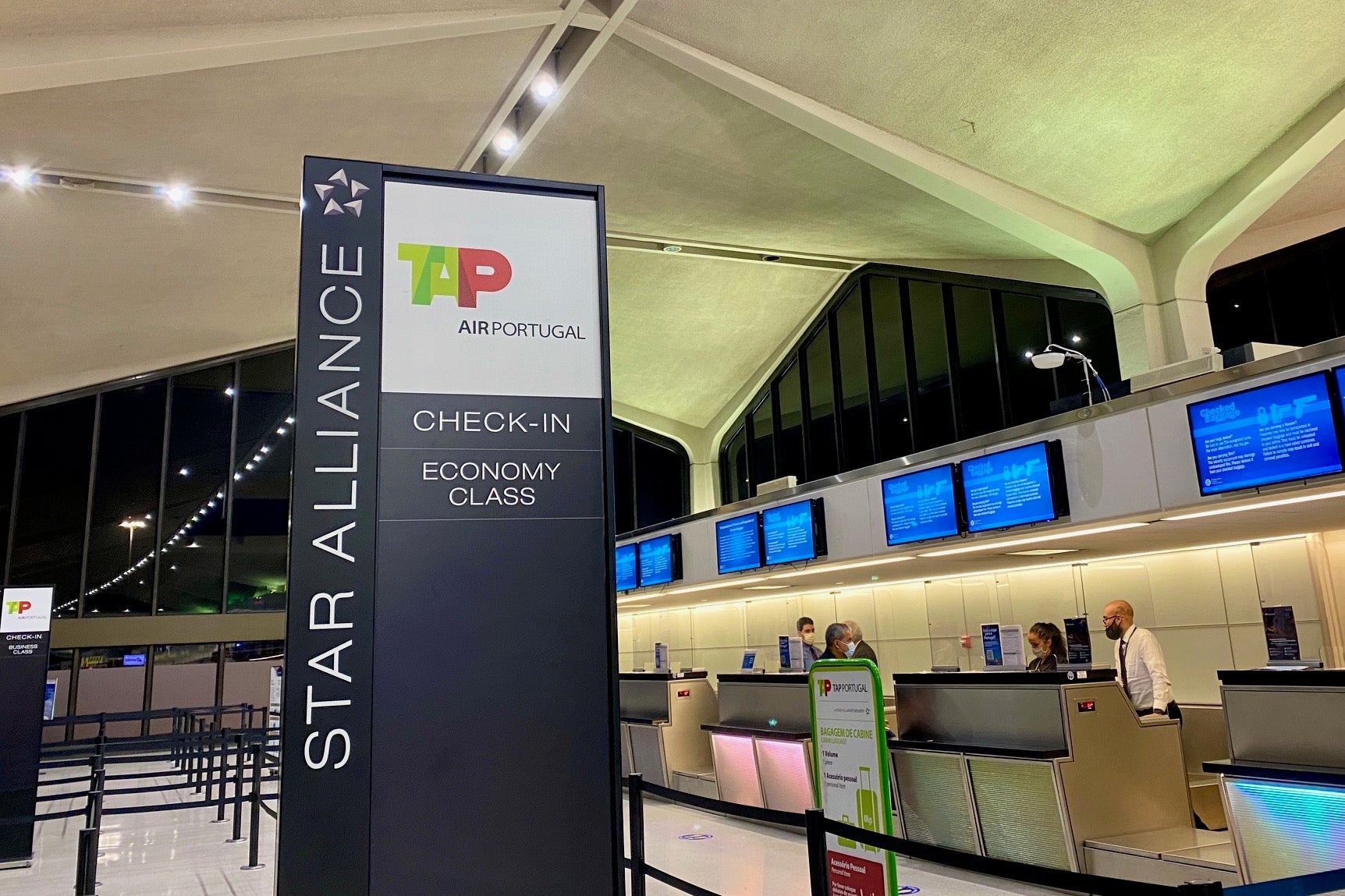
I arrived at Newark Liberty International Airport (EWR) about 90 minutes prior to departure. Once at Terminal 2, I found a deserted check-in counter.
While my flight was almost completely full, TAP currently only flies a relatively small aircraft between the New York City area and Lisbon -- twice daily on a single-aisle, 168-passenger Airbus A321LR.
The agent took my passport, verified my negative COVID-19 test and handed me my boarding pass -- all in a matter of seconds. Under the latest guidelines, I also could have shown an EU Digital Health Certificate to be allowed onboard. However, the agent wasn't aware of this change.
He was further confused when I asked whether the U.S.'s CDC vaccine card could be used to bypass a negative test result.
Lesson if you want to fly to Portugal now: Bring your negative COVID-19 test result within the allotted time frame, even if you're fully vaccinated.
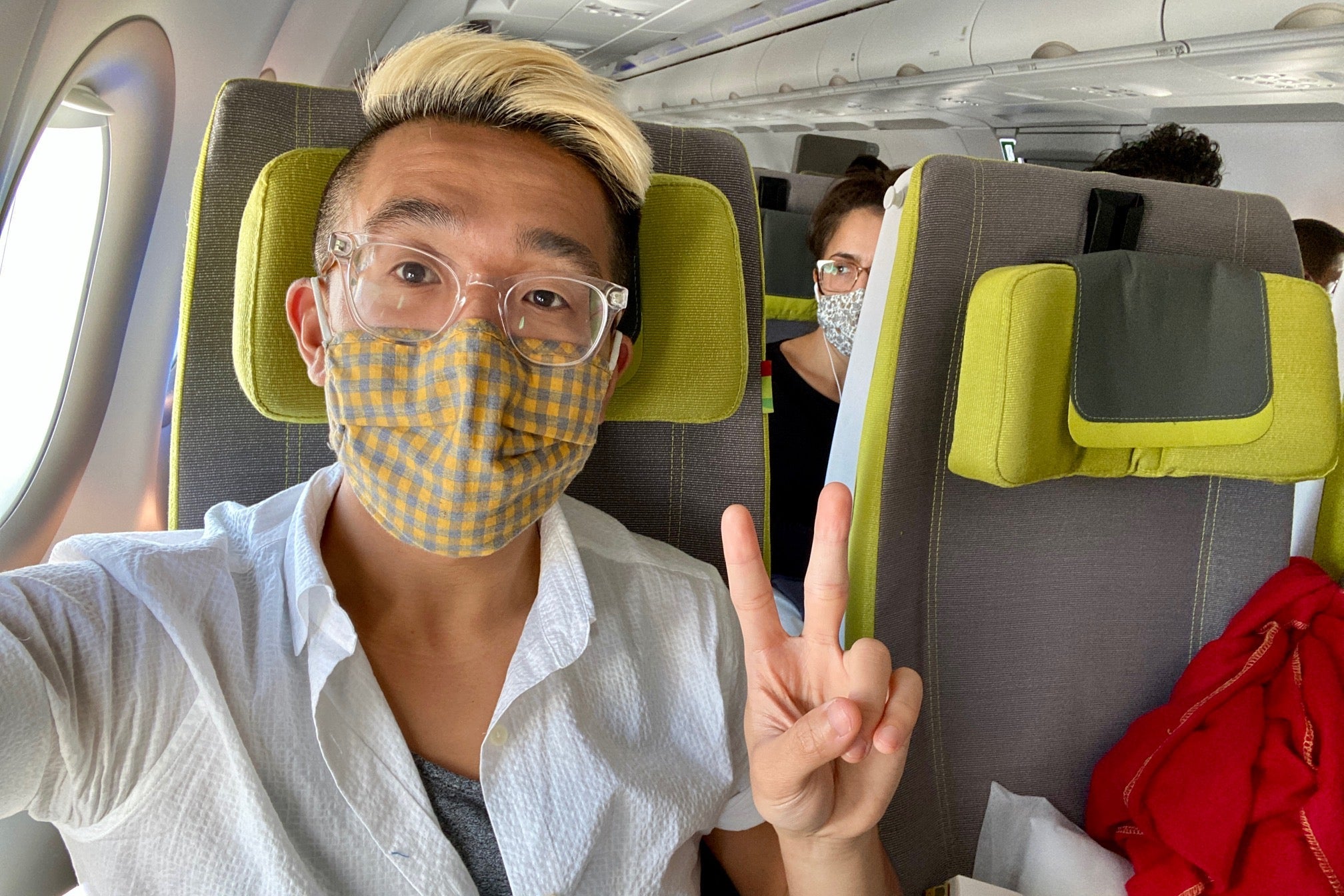
The rest of the check-in and boarding experience was about par for the course for an international flight.
Experience at the Portuguese border
The flight to Lisbon was aboard one of TAP's new A321LR's, a beautiful narrowbody aircraft with the latest onboard entertainment and tech.
I sat in the economy cabin and found the overall experience more than pleasant for the short-ish, overnight seven-hour-and-change haul. At the beginning of the flight, the cabin crew passed out Portuguese entry forms -- which could also have been filled out during online check-in.
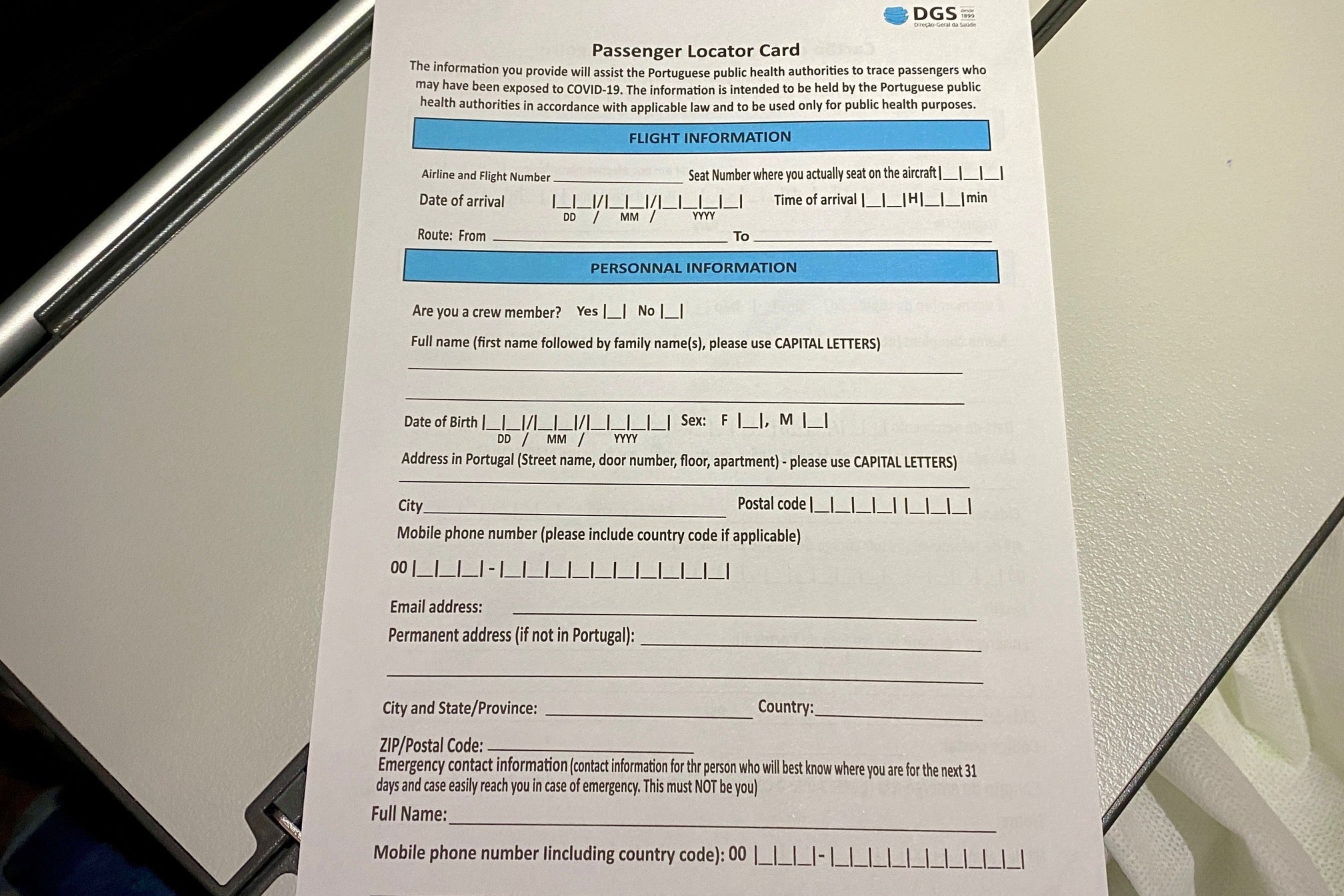
Deplaning was via bus gates which included a 20-minute standing-room ride to immigration.
Once at immigration, the queue was long but orderly and divided into two sections -- EU passport holders and all other passport holders. All passengers, including those connecting, were required to wait in line.
A 20-25 minute wait ensued before I reached a Portuguese official. Interestingly, the official did not check the negative test result again, nor did they collect the physical copy of the entry form that I filled out on board the flight.
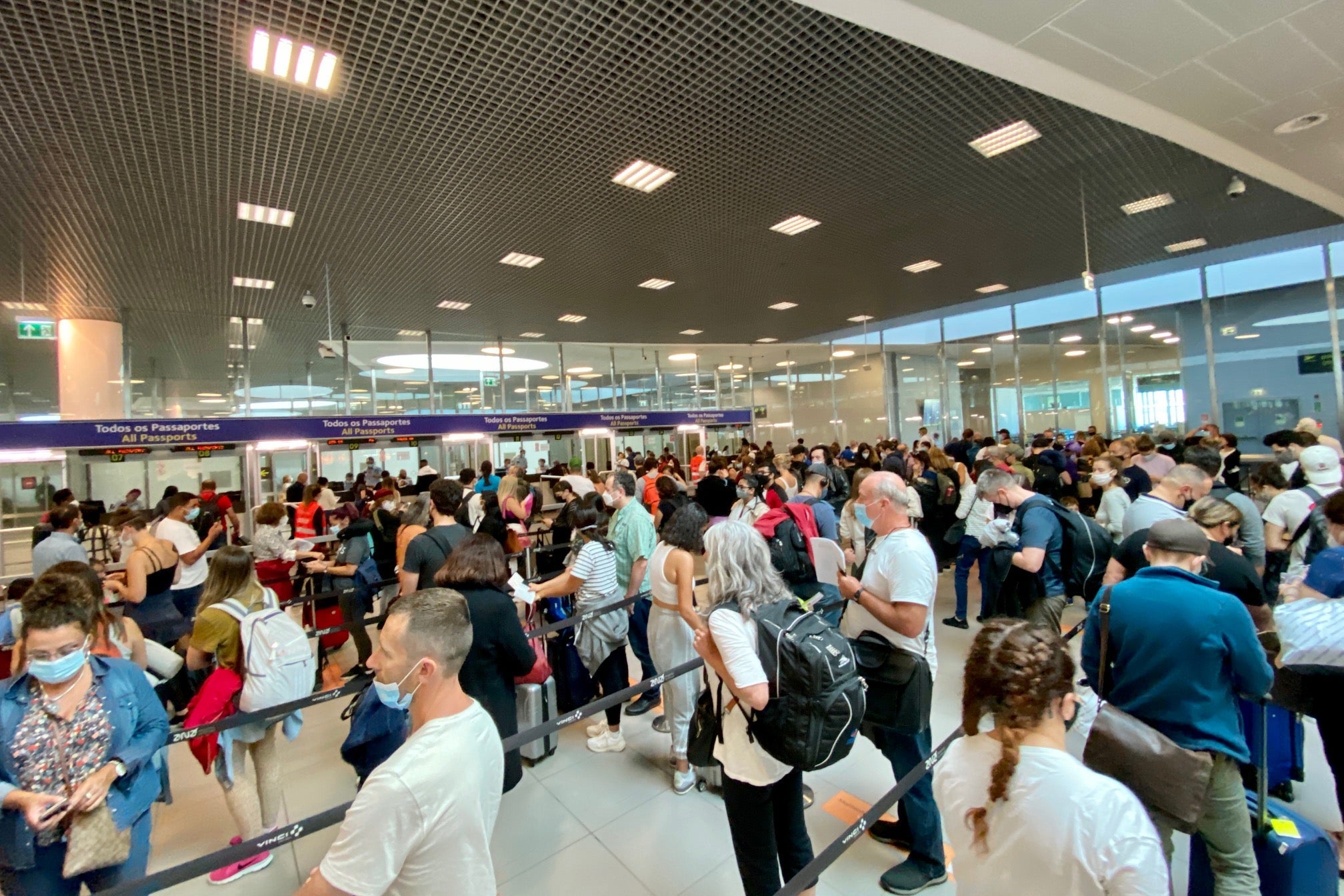
After immigration, I collected my checked bag, ordered an espresso and pastel de nata landside and then took a taxi into town.
Related: Traveling to Portugal: 7 things to know before you go
Bottom line
Portugal is currently open for U.S. visitors -- as long as you're willing to undergo multiple COVID-19 tests both for entry as well under certain conditions for accommodations and dining. You'll also need a test to return to the U.S. too.
While the juice might not be worth the squeeze for some, I'm thrilled to be on my first big international trip in well over a year -- and I'm glad my entry was fairly smooth.
Stay tuned for more content, including reviews of three points hotel properties, a road trip itinerary between Lisbon and Porto and a full count of just how many tests I'll need to take before heading back home to New York.
TPG featured card
at Capital One's secure site
Terms & restrictions apply. See rates & fees.
| 5X miles | Earn 5X miles on hotels, vacation rentals and rental cars booked through Capital One Travel |
| 2X miles | Earn unlimited 2X miles on every purchase, every day |
Pros
- Stellar welcome offer of 75,000 miles after spending $4,000 on purchases in the first three months from account opening. Plus, a $250 Capital One Travel credit to use in your first cardholder year upon account opening.
- You'll earn 2 miles per dollar on every purchase, which means you won't have to worry about memorizing bonus categories
- Rewards are versatile and can be redeemed for a statement credit or transferred to Capital One’s transfer partners
Cons
- Highest bonus-earning categories only on travel booked via Capital One Travel
- LIMITED-TIME OFFER: Enjoy $250 to use on Capital One Travel in your first cardholder year, plus earn 75,000 bonus miles once you spend $4,000 on purchases within the first 3 months from account opening - that’s equal to $1,000 in travel
- Earn unlimited 2X miles on every purchase, every day
- Earn 5X miles on hotels, vacation rentals and rental cars booked through Capital One Travel
- Miles won't expire for the life of the account and there's no limit to how many you can earn
- Receive up to a $120 credit for Global Entry or TSA PreCheck®
- Use your miles to get reimbursed for any travel purchase—or redeem by booking a trip through Capital One Travel
- Enjoy a $50 experience credit and other premium benefits with every hotel and vacation rental booked from the Lifestyle Collection
- Transfer your miles to your choice of 15+ travel loyalty programs
- Top rated mobile app


